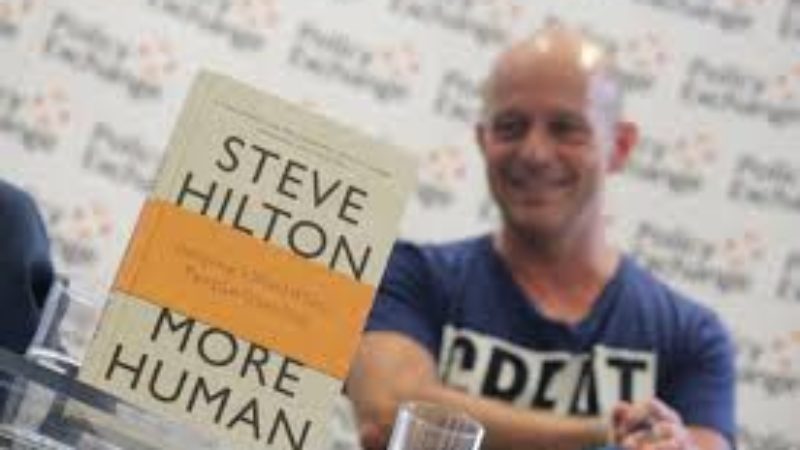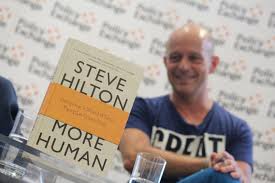
I’ve seen lots of people on Twitter gleefully mocking Steve Hilton since he’s been back in the UK to promote his new book. He’s been written off as a has-been, a Tory radical who failed to make his mark on government and who’s now doing his thinking under some bluer skies in California.
But in writing off the man, we risk dismissing his ideas – and that would be a huge mistake.
Yes, Hilton’s book, More Human, is seriously flawed. His analysis is confused and contradictory. Many of his prescriptions are unworkable and – as far as I’m concerned – morally unjustifiable. But there’s a lot he gets right – not least the fundamental principle that people are what matter. A principle that most of our big institutions – the Labour Party included – seem to have lost sight of.

We need to own the agenda that Hilton promotes rather than simply dismissing it. And not just because it aligns with our values of solidarity, dignity and compassion, but because putting this guiding principle at the heart of everything we do will help us both win power and deliver on our priorities when we get there.
Take public services. Underpinning everything we do should be the belief that the state is there to help people solve their own problems – not fix them on their behalf. We need to make sure schools are teaching our kids to be resilient in the face of challenge, that people with depression aren’t just given pills and sent packing, and that our international aid goes directly to communities, not faceless bureaucrats.
But first we have to understand the people whose lives we’re seeking to improve and the context in which they’re living. So when Tristram Hunt rightly says that Labour needs to be “just as tough on worklessness as it is tough upon the causes of worklessness”, we need to make sure we take the time to understand the psychological, emotional and situational elements that can lead to people staying on benefits, even when there are jobs available.
In doing this, we need to look to innovative organisations like Participle that, with the IPPR, has led the way on developing and implementing the concept of the relational state. And we need to draw on recent work that helps us understand the cognitive factors that can keep people locked in a cycle of poverty, and what this tells us about how best to help them break that cycle.
The way we make policy needs to change, too. We need to be less informed by ideology, and more by the actual experiences of people who are struggling to get by on the minimum wage, who are caring for an elderly parent, or who are worried about whether their child’s education is suffering because so many kids in their class don’t speak English as a first language. But this isn’t about empathy for its own sake, or even kindness – it’s about efficacy. We will create better policy and achieve the impact we all so desperately want to see only when we reduce the intellectual, emotional and psychological distance between policymakers and the people whose lives we’re seeking to improve.
And then there’s the way we campaign. There’s nothing human about voter ID – for the voters or for our activists. We need to build on the best of what community organising has to offer while not abandoning the rigour with which we’ve implemented our GOTV efforts in the past. This is the only way to excite and engage our activists, build deeper relationships with the communities we seek to represent, and show people that we understand their struggles, their hopes, and – yes – their aspirations.
Of course none of this will be easy. Change is hard, and requires leaders who have the courage to take risks. But the bigger risk would be to take the easy route, and my party is braver than that.




More from LabourList
‘Labour promised to make work pay. Now it must deliver for young people’
‘Council Tax shouldn’t punish those who have the least or those we owe the most’
Two-thirds of Labour members say government has made too many policy U-turns, poll reveals